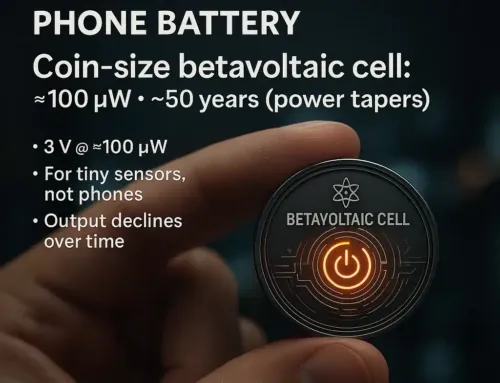
Approx. read time: 4.6 min.
Post: The Impact of Biden’s Tariff Wall: Surge of Chinese-Made Teslas in Canada
The Impact of Biden’s Tariff Wall: Surge of Chinese-Made Teslas in Canada
The North American market is witnessing a significant shift in the electric vehicle (EV) landscape due to geopolitical and economic changes. With the Biden administration quadrupling tariffs on electric vehicles manufactured in China, the ripple effects are reaching Canadian shores. Last year alone, 44,000 Teslas arrived from China at the port of Vancouver, signaling a notable increase in Chinese-made EVs in Canada. This influx is causing a stir among industry stakeholders and prompting calls for policy changes.
Rising Imports of Chinese-Made Teslas – The Impact of Biden’s Tariff Wall: Surge of Chinese-Made Teslas in Canada
Canada is experiencing a surge in imports of Chinese-made electric vehicles, particularly Tesla models manufactured in Shanghai. The volume of cars arriving from China at the port of Vancouver increased more than fivefold last year, reaching 44,400 units. This spike is largely attributed to Tesla’s decision to start shipping Model Y vehicles from its Shanghai factory. The increased presence of these vehicles in Canada is raising concerns among local auto-industry players, who are urging Prime Minister Justin Trudeau to adopt measures similar to those implemented by the White House to protect domestic manufacturers.
Tariffs and Incentives: A Comparative Analysis – The Impact of Biden’s Tariff Wall: Surge of Chinese-Made Teslas in Canada
Currently, Canada imposes a relatively small tariff of about six percent on Chinese-made vehicles. Additionally, Canadian consumers can benefit from a federal rebate program when purchasing foreign-manufactured EVs. This has made Teslas from Shanghai particularly attractive, as buyers can receive a $5,000 federal purchase incentive, funded by Canadian taxpayers. This situation has drawn criticism from industry leaders like Flavio Volpe, president of Canada’s Automotive Parts Manufacturers’ Association. Volpe has been vocal about the need for policy changes to prevent the erosion of the domestic automotive market.
Government Response and Market Impact
Despite the concerns raised, officials from Canada’s transportation department have not commented on the issue. Data from Transport Canada indicates that three out of every ten EV buyers who requested the federal rebate in the past year purchased a Tesla, amounting to around 51,000 cars. Some provincial governments, such as British Columbia, offer additional rebates, further incentivizing the purchase of EVs.
A Nascent Market for Chinese-Made Vehicles
While Canada is beginning to see a rise in Chinese-made vehicle imports, it is still a relatively nascent market compared to Mexico. Companies like BYD Co. and Anhui Jianghuai Automobile Group Co. have already established a significant presence in Mexico over the past decade. In Canada, Japanese and Korean manufacturers continue to dominate the Asian EV market segment.
The State of the Canadian EV Market
Electric vehicles constitute a small but growing part of the Canadian auto market. Last year, Canadians registered approximately 185,000 battery electric and plug-in hybrid electric vehicles, a 50 percent increase from the previous year, yet still only 11 percent of all new vehicle registrations. The federal government’s subsidies are designed to boost this number, with ambitious targets set for the future: 60 percent of all new light-duty vehicles sold in the country should be zero-emission by 2030, and 100 percent by 2035. However, some industry experts, including Volpe, argue that these goals are overly aggressive and should be more aligned with U.S. targets.
The Future of EV Imports and Policies
Teslas sold in Canada are sourced from either Shanghai or Fremont, California. The company’s Canadian sales center has not disclosed the exact distribution of these sources. With the increasing appearance of Chinese-manufactured Teslas in the Canadian used car market, industry observers like Huw Williams of the Canadian Automobile Dealers Association predict that the discrepancy between Canadian and U.S. policies will become more significant. Williams suggests that Canadian policymakers will need to address how the influx of foreign-made EVs impacts the domestic market.
The surge of Chinese-made Teslas in Canada underscores the complex interplay of international trade policies, consumer incentives, and market dynamics. As Canada continues to navigate these challenges, it remains to be seen how government policies will evolve to balance the interests of domestic manufacturers and the growing demand for electric vehicles.
With my personal 20 years of experience in the automotive industry and extensive collaboration with Chinese vendors, Canada should be proud to embrace the quality of Chinese-made vehicles, which can rival that of any of the Big Three automakers. By embracing the quality and competitiveness of Chinese-made vehicles while protecting domestic interests, Canada can position itself strategically in the evolving global automotive market. It’s time for consumers to reap the benefits and take advantage of the market, enjoying high-quality, competitively priced vehicles that enhance the overall automotive landscape in Canada.
Related Videos:
Related Posts:
Guiding AI Through Labyrinth: Right-Hand Wall Following Algorithm for Maze Navigation – Python
Ontario Premier Doug Ford Champions Northern Mines for Economic Surge in BEV Industry
Combatting the Surge of Counterfeit Chips: The Crucial Need for Zero Trust in Tech









